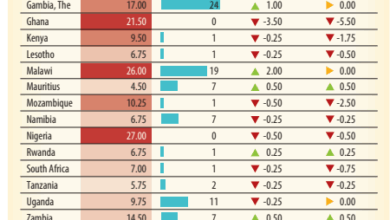A call for urgent action on cataract and eye health

The revelation that Ghana performs only about 10 per cent of the cataract surgeries required annually should alarm all who care about public health and social progress.
Cataract, a condition easily treatable through surgery, has become the leading cause of blindness in Ghana, accounting for more than half of all cases of blindness nationwide. According to the Ghana Health Service (GHS), roughly 165,000 Ghanaians are affected, yet only a small fraction receive the necessary treatment.
This grim statistics expose a glaring gap between medical capability and accessibility. Despite the World Health Organisation (WHO)’s recommendation that at least 30 per cent of cataract cases must be treated each year to control blindness, Ghana manages only a third of that target. This shortfall has left tens of thousands living unnecessarily in darkness, a preventable tragedy that undermines both individual well-being and national productivity.
The consequences of sight loss are not only medical but also economic, with hundreds of millions of cedis lost annually due to reduced productivity and dependency.
Equally worrying is the chronic shortage and poor distribution of eye care professionals. With only 140 ophthalmologists, a ratio of one specialist to 240,000 people; and six regions without a single ophthalmologist, access to treatment remains deeply unequal.
Rural communities, where poverty and limited awareness worsen health outcomes, bear the heaviest burden. This situation is further compounded by inadequate facilities and a lack of essential equipment to support timely surgical interventions.
The Ghanaian Times commends the Ghana Health Service and Ministry of Health for eliminating trachoma as a public health threat and expanding training for eye care personnel. However, these gains risk being overshadowed if cataract and other causes of blindness are not tackled with equal urgency.
The call by health authorities to review the National Health Insurance Scheme (NHIS) to cover spectacles and low-vision aids is timely and must be given serious consideration. Eye care should not be a privilege reserved for those who can afford it, but a right accessible to all.
Beyond policy reforms, the nation must invest in outreach programmes, public education, and mobile eye care clinics to reach remote areas. Partnerships with NGOs, faith-based groups, and the private sector can accelerate surgical campaigns and community screenings.
Most importantly, citizens must take personal responsibility through regular eye checks and preventive care.
In our view, sight is life, and vision is opportunity. Every Ghanaian restored to sight is a family empowered, a worker restored, and a nation strengthened. Ghana cannot afford to allow preventable blindness to persist in the face of known solutions. It is time to bring the light back into the lives of thousands, by making eye health a true national priority.
🔗 Follow Ghanaian Times WhatsApp Channel today. https://whatsapp.com/channel/0029VbAjG7g3gvWajUAEX12Q
🌍 Trusted News. Real Stories. Anytime, Anywhere.
✅ Join our WhatsApp Channel now! https://whatsapp.com/channel/0029VbAjG7g3gvWajUAEX12Q






